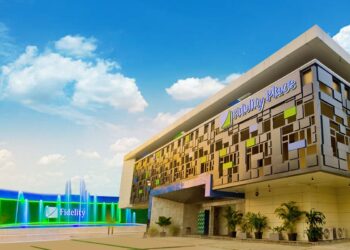Despite the Lagos State Tenancy Law mandating monthly or quarterly rent payments, landlords, agents, and many tenants continue to operate on an annual or 18-month rent payment structure, LEADERSHIP reports.
The law aims to ease the financial burden on tenants by promoting flexible payment systems to improve housing affordability and accessibility. However, investigations reveal that both landlords and facility managers prefer lump sum annual payments, ensuring quick returns on investments and guaranteeing stable cash flow.
While the Lagos State government is pushing for the implementation of monthly and quarterly rent policies to make housing more affordable, some tenants also favour annual payments for budget planning and long-term peace of mind.
Commissioner for Housing, Moruf Akinderu-Fatai, reiterated that monthly or quarterly rent options would ease the pressure of raising huge upfront sums. He said the government is currently consulting landlords, developers, and other stakeholders to address challenges surrounding enforcement and payment systems.
Akinderu-Fatai added that this policy forms part of broader efforts to sanitise the sector, protect residents from unregistered agents and developers, and enforce mandatory registration of real estate practitioners with LASRERA.
President of the Estate Rent and Commission Agents Association of Nigeria (ERCAN), Godwin Aleke, pledged the association’s support for the government’s initiatives to promote flexible rent payments while sanitising the real estate sector.
However, opinions remain divided. Real estate developer, Olawale Babatunde, warned that monthly rent payments could reduce landlords’ returns on investments and weaken the traditional rental structure. Similarly, Gbenga Ismail, principal partner at Ismail & Partners, argued that monthly or quarterly payment systems might affect property supply and the overall growth of the rental market in Lagos.
Under the Lagos Tenancy Law, landlords and agents are prohibited from demanding rent payments exceeding three months from sitting tenants. Offenders risk a fine of N100,000 or up to three months imprisonment.
Stakeholders believe robust government policies on affordable land and building materials are essential to balance rental market reforms with sustainable property development in Lagos State.












